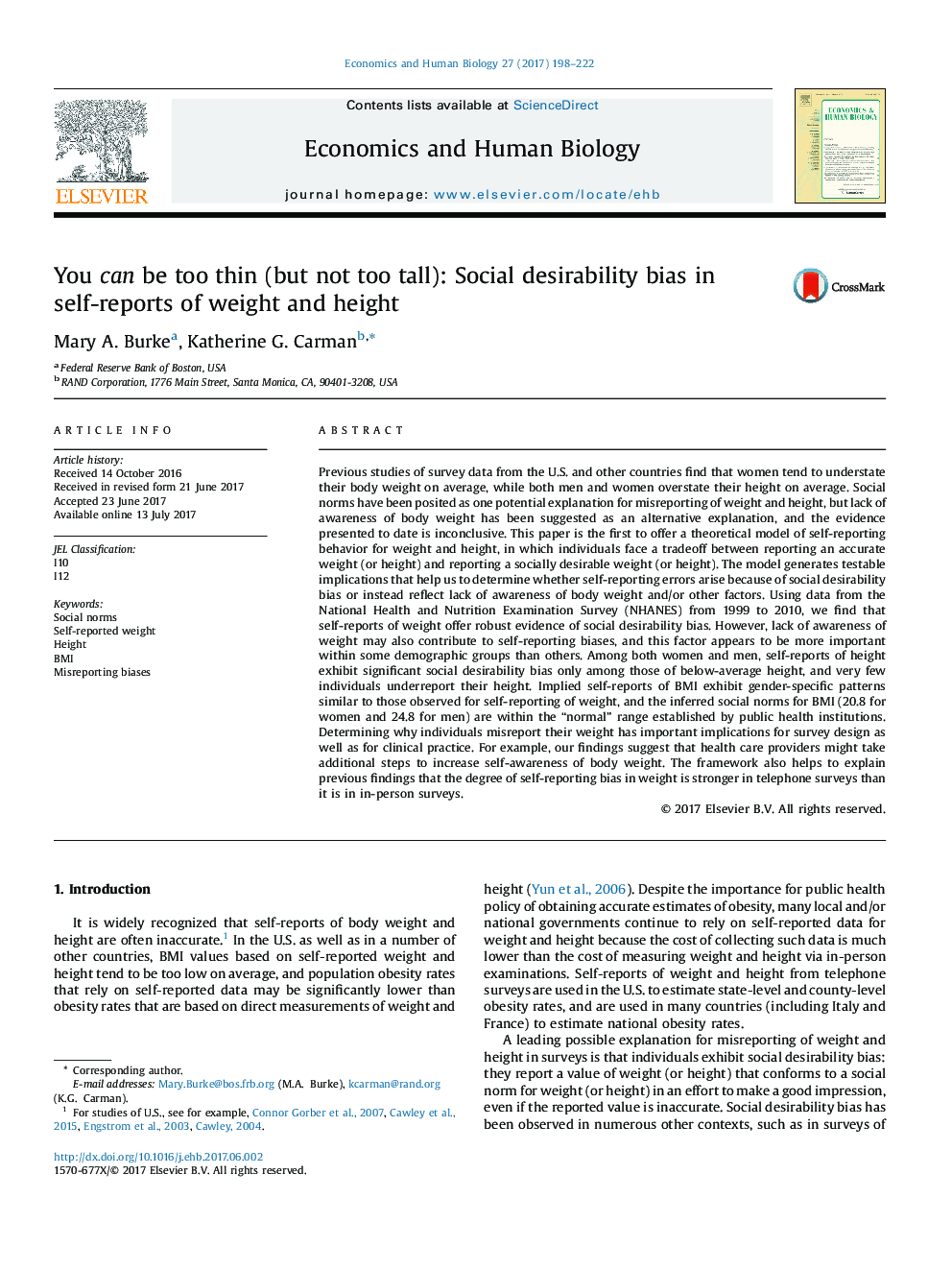| کد مقاله | کد نشریه | سال انتشار | مقاله انگلیسی | نسخه تمام متن |
|---|---|---|---|---|
| 5056776 | 1476552 | 2017 | 25 صفحه PDF | دانلود رایگان |
- Reasons for self-reporting errors in weight and height are tested using NHANES data.
- Self-reports of weight offer robust evidence of social desirability bias.
- However, lack of awareness of weight may contribute to self-reporting biases.
- Results have important implications for survey design and for clinical practice.
Previous studies of survey data from the U.S. and other countries find that women tend to understate their body weight on average, while both men and women overstate their height on average. Social norms have been posited as one potential explanation for misreporting of weight and height, but lack of awareness of body weight has been suggested as an alternative explanation, and the evidence presented to date is inconclusive. This paper is the first to offer a theoretical model of self-reporting behavior for weight and height, in which individuals face a tradeoff between reporting an accurate weight (or height) and reporting a socially desirable weight (or height). The model generates testable implications that help us to determine whether self-reporting errors arise because of social desirability bias or instead reflect lack of awareness of body weight and/or other factors. Using data from the National Health and Nutrition Examination Survey (NHANES) from 1999 to 2010, we find that self-reports of weight offer robust evidence of social desirability bias. However, lack of awareness of weight may also contribute to self-reporting biases, and this factor appears to be more important within some demographic groups than others. Among both women and men, self-reports of height exhibit significant social desirability bias only among those of below-average height, and very few individuals underreport their height. Implied self-reports of BMI exhibit gender-specific patterns similar to those observed for self-reporting of weight, and the inferred social norms for BMI (20.8 for women and 24.8 for men) are within the “normal” range established by public health institutions. Determining why individuals misreport their weight has important implications for survey design as well as for clinical practice. For example, our findings suggest that health care providers might take additional steps to increase self-awareness of body weight. The framework also helps to explain previous findings that the degree of self-reporting bias in weight is stronger in telephone surveys than it is in in-person surveys.
Journal: Economics & Human Biology - Volume 27, Part A, November 2017, Pages 198-222
